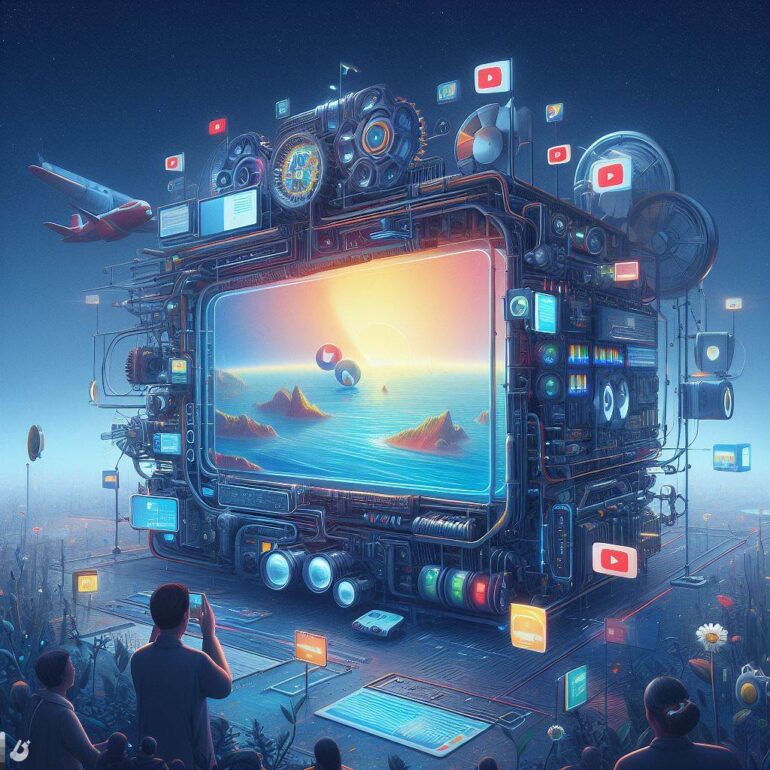TL;DR:
- Google’s DeepMind and YouTube introduce Lyria, an AI music generation model.
- Lyria comes with two toolsets, Dream Track and Music AI, enabling advanced music creation.
- Concerns arise about the authenticity and sustainability of AI-generated music.
- Initial focus on shorter musical pieces and collaboration with artists for authenticity.
- The Music AI Incubator involves artists, songwriters, and producers in refining AI tools.
- Google’s venture aligns with industry trends of AI-driven music innovation.
Main AI News:
In a recent announcement, Google’s DeepMind, in collaboration with YouTube, has introduced Lyria, a groundbreaking AI music generation model that is set to revolutionize the world of artistic expression. This cutting-edge technology, accompanied by two experimental toolsets, Dream Track and Music AI, represents a major stride forward in AI-assisted music creation, promising to reshape the way musicians and creators engage with their craft.
Lyria’s unveiling builds upon Google’s previous exploration of AI-based music creation, which initially focused on generating tunes based on word prompts. Now, the spotlight shifts to DeepMind’s Lyria model, which aims to collaborate with YouTube, empowering creators to tap into its vast potential. Notably, Dream Track, an innovative tool, empowers creators to craft AI-generated soundtracks for YouTube Shorts, immersing themselves in the distinct musical styles of renowned artists.
However, amidst the excitement surrounding AI’s role in music creation, concerns have arisen regarding the authenticity and sustainability of AI-generated compositions. The intricacies of maintaining musical continuity across extended passages pose a significant challenge for AI models. DeepMind acknowledges this complexity, emphasizing the difficulty of preserving the intended musical outcomes over extended durations, which can lead to a surreal distortion over time.
To address these challenges, DeepMind and YouTube initially focused on shorter musical pieces. The initial release of Dream Track is tailored for a select group of creators, offering them the opportunity to craft 30-second AI-generated soundtracks carefully curated to capture the musical essence of their chosen artists. Notably, artists actively participate in testing these models, ensuring authenticity and providing invaluable insights.
The team underscores the collaborative nature of these endeavors. They highlight the Music AI Incubator, a collective consisting of artists, songwriters, and producers who are actively contributing to the refinement of AI tools. Their involvement signifies a commitment to exploring the boundaries of AI’s capabilities while enhancing the creative process.
While Dream Track enjoys a limited release, the broader spectrum of Music AI tools is set to follow later this year. DeepMind tantalizingly hints at their capabilities, including the creation of music based on specified instruments or humming, the composition of ensembles from simple MIDI keyboard inputs, and the crafting of instrumental tracks to complement existing vocal lines.
Google’s venture into AI-generated music is not isolated. Meta’s open-sourced AI music generator and initiatives from startups like Stability AI and Riffusion underscore the accelerating shift in the music industry toward embracing AI-driven innovation. With these advancements, the industry stands on the brink of a transformative era.
Conclusion:
The introduction of Lyria by Google DeepMind and YouTube signifies a significant advancement in AI-assisted music creation. While there are concerns about authenticity, the collaboration with artists and the Music AI Incubator demonstrates a commitment to refining AI tools. This development aligns with the broader industry trend of embracing AI-driven innovation in music, marking a transformative era for the market.

